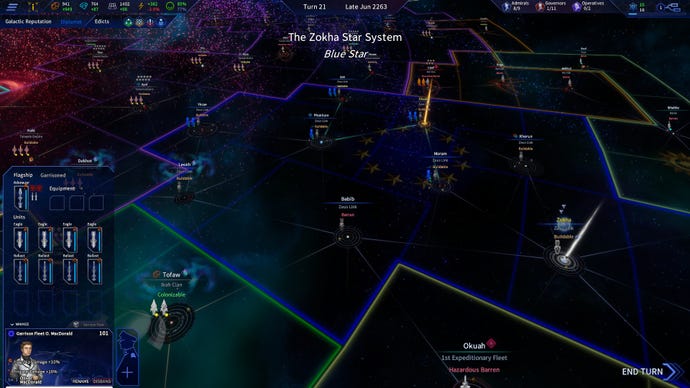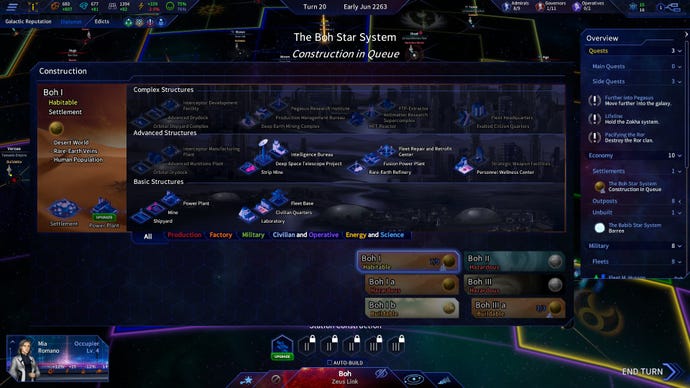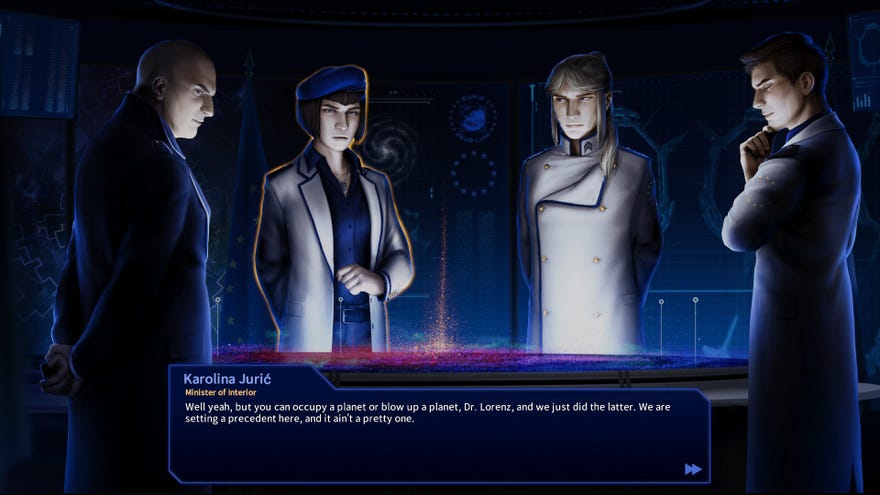The narrative outranks you in The Pegasus Expedition, and it works
Earth angle
Alright, sure, so we technically assassinated your leader, and detonated a populated planet, and wiped out the first clan we ever met. But that was all self defence and we're not here to cause trouble. We just... have a lot going on okay.
The Pegasus Expedition is one of my favourite kinds of game. I'm not sure if it quite comes together enough, but it's trying something so original that even its partial success is worth celebrating. You're leading a 4X-ish effort to establish a power base in an unfamiliar galaxy. But you're not doing it to conquer everyone or win victory points. You're doing it so you can go back home and save Earth from annihilation.
Treating this as a strategy game foremost, especially a 4X, would lead to disappointment. Not because it isn't one, but because it is about the story and concept above all, and a lot of freedom and replayability is sacrificed for that, by necessity. Objectives can't really be ignored, pushing you in specific directions whether you want to or not. This is justified narratively: you're not the omnipotent space emperor, but an official of the EU who's been appointed to lead Earth's three superpowers to settle this new system and come back to stop the aliens who are killing everyone.
It's not long before you become the hostile aliens who are killing everyone, of course. There are people already here, and you need their planets. Not just one people, either, but a multitude of empires, micro-states, species, and jostling factions who mostly watch and wait to see how the situation plays out before even talking to you.
The other Earth superpowers are present on the map, and slowly expand alongside you if you leave them room (you should). You're absolutely united by necessity... but for how long? Even if you deal honestly with your new neighbours, they often won't believe you, and aggression and conquest are often mandatory because of the stakes involved, and because it's literally your job to do what the alliance agrees on.


Its battles are fairly hands off, as you mostly choose from several approaches set out by your admirals and watch while things play out. It's about fleet composition and research and where and when you strike rather than specifically directing ship movements. But its 4X parts are more involved than you'd think, so you do have real strategic decisions to make in how you do the things you don't necessarily want to, and whether to be openly ruthless or at least try to act in good faith and with peaceful intent until your hand is forced. There's a genuine sense of reluctance to your actions rather than the more common video game thing where you can tell the player character was just waiting for an excuse to start doing murders and brooding about it.
It has its flaws. The UI takes some getting used to, and has a few sloppy oversights. Only three fleets can be in a system, necessitating some awkward shuffling on busy fronts, and there's that dialogue discrepancy thing where a proffered option doesn't do what you thought it would. But The Pegasus Expedition is an interesting go at a concept the genre rarely even attempts, and deserves recognition for that.


